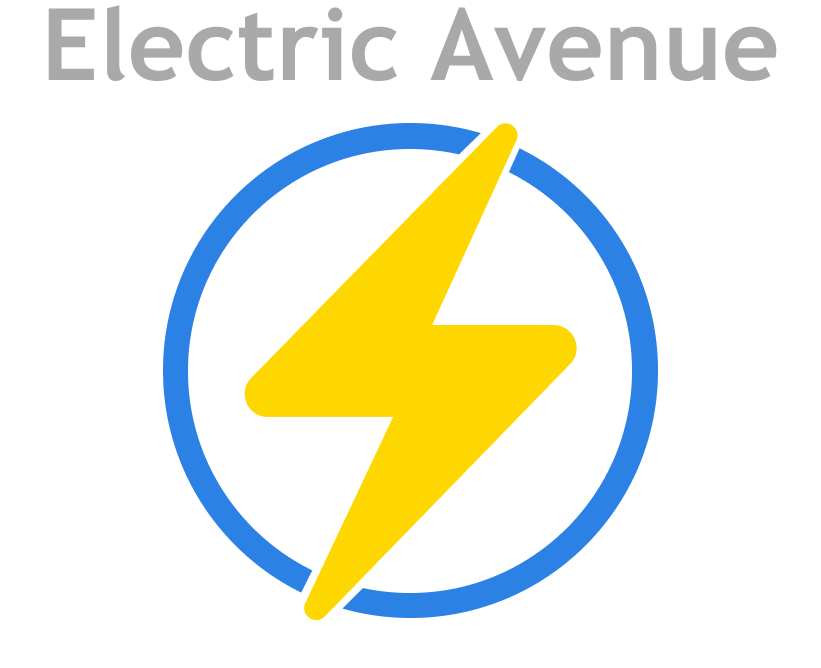Happy Thursday! Welcome to Electric Avenue the newsletter that helps you keep the title of ‘EV Charging Expert’ amongst your colleagues and friends.🧠
Here’s what we have for you today:
EV tax credit madness
3 Links 🔗
Meme of the week 🤡
Not subscribed yet? Sign up here 👇🏼
Let's dive in!

⚡EV tax credit madness: How Hyundai, Tesla and Co are reacting
This week we’re bringing you a news roundup of all the craziness that has been going on in the US EV market in the last two weeks. Here’s the play-by-play:
Trump-sponsored OBB (“One Big Beautiful Bill”) is a new US law passed this year. One of the included provisions was an end of the federal EV tax credits by Sep 30th, 2025.
These tax credits were passed under the Biden administration and included $7,500 of new EV cars, SUVs and pickup trucks, as well as up to $4,000 of used EVs that cost under $25,000.
During Q3 2025, most EV OEMs and dealers ran aggressive sale and leasing offers to entice as many folks as possible to take advantage of the credits.
So far, so good and expected right? But it’s what happened after Sep 30th came and passed that was a little more unexpected:
1) Hyundai USA aggressively dropped prices on the Hyundai IONIQ 5, their best selling EV, by up to ~$8,000 depending on the trim. (Link)
2025 Hyundai IONIQ 5 Trim | Driving Range (miles) | 2025 Starting Price | 2026 Starting Price* | Price Reduction |
IONIQ 5 SE RWD Standard Range | 245 | $42,600 | $35,000 | ($7,600) |
IONIQ 5 SE RWD | 318 | $46,650 | $37,500 | ($9,150) |
IONIQ 5 SEL RWD | 318 | $49,600 | $39,800 | ($9,800) |
IONIQ 5 Limited RWD | 318 | $54,300 | $45,075 | ($9,225) |
IONIQ 5 SE Dual Motor AWD | 290 | $50,150 | $41,000 | ($9,150) |
IONIQ 5 SEL Dual Motor AWD | 290 | $53,100 | $43,300 | ($9,800) |
IONIQ 5 XRT Dual Motor AWD | 259 | $55,500 | $46,275 | ($9,225) |
IONIQ 5 Limited Dual Motor AWD | 269 | $58,200 | $48,975 | ($9,225) |
2) Tesla initially increased its leasing rates on all models, reflecting the tax credit going away. But then on October 7th it introduced two new Base trim levels for its best selling cars, the Model 3 and the Model Y. These are essentially de-contented variants that start at ~$5,000 less than the higher trims. For example the new Model Y “Standard” trim now starts at $40,000 in the US whereas the existing Model Y “ Premium” trims are priced at $45,000 and above.
3) Ford and GM seemingly got creative: They placed thousands of electric vehicles in service by selling them to themselves. This makes the vehicles eligible for the federal tax credits (which in this case will go to Ford or GM), and both companies can pass on those discounts to customers when they sell them these vehicles over the next few months.
Our take: While incentives can accelerate EV adoption, poorly designed incentives can also become a waste of taxpayer money and turn into indirect subsidies to vehicle OEMs. The Biden EV tax credit arguably had some design flaws and major loop holes, for example it’s income limits and domestic assembly provisions were easily circumvented through leasing loopholes. At the same time, even pre-incentive prices of electric vehicles have come down significantly and we now have well-equipped mass market vehicles from brands like GM, Tesla, Nissan and Hyundai that start in the $30,000-$40,000 dollar range. Maybe we’ll be just fine without the EV tax credit. Let’s see how EV sales in the US develop over the next few quarters without it.
What are your thoughts on this? Leave a comment, reply to this email or reach out to [email protected]

3 Links 🔗
Tesla power boost for v4 Superchargers ⚡: Several years have passed since Tesla introduced its v4 Supercharger dispensers. This has caused much confusion as these units were paired with existing v3 Supercharger power cabinets, which still have a maximum DC output of 500V. Some people have started calling these “v3.5 sites” to indicate that they are not capable of the high-voltage DC output of up to 1000V. The main purpose was to solve the short cable issue and enable non-Tesla vehicles to charge at Superchargers. However, the wait is finally over, as Tesla has opened its first 'full' v4 Supercharger site in California, combining both v4 dispensers and v4 power cabinets. This full v4 configuration is capable of charging rates of up to 500 kW per dispenser and has a DC voltage output of up to 1000 V. Each power cabinet provides up to 1,200 kW, which is shared between a row of dispensers. For now, the site is only open to Tesla vehicles, and the first users have already achieved the promised peak charging rate of 500 kW on their Tesla Cybertruck vehicles. The v4 cabinets will also enable the Tesla Semi to charge at 1.2 MW.
Comparison of European V2G offerings 📊 : Jaap Burger shared an insightful breakdown of the three active Vehicle-to-Grid (V2G) propositions in Europe — 🇩🇪 BMW Group/E.ON, 🇫🇷 Mobilize (Renault & The Mobility House Energy), and 🇬🇧 Octopus Energy.
All three promise “free driving” for users covering roughly 11,000–14,000 km per year, achieved by rewarding EV owners for plugged-in flexibility.
E.ON (DE): €0.24/hour up to 250 h/month
Mobilize (FR): €0.06/hour with no limit
Octopus (UK): min. 240 h and 20 plug-ins per month
Each uses smart-meter-based optimization behind fixed-price contracts, with suppliers controlling charge/discharge to capture market value — while drivers retain full control over departure needs. Burger’s updated V2G poster visualizes how regulation, smart-meter rollout, and network tariffs shape V2G’s real-world potential across Europe. (link)

Source: Jaap Burger - LinkedIn
Tesla Model Y Performance gets AC Bidi 🔃 : For years Tesla has deflected when it was asked about bidirectional charging capabilities. Then came the Cybertruck and with it the launch of Tesla Powershare, the umbrella brand for AC V2H emergency backup and AC V2L capabilities enabled by the trucks bi-directional 48A/9.6kW onboard inverter. At the time many folks speculated that the refreshed Tesla Model 3 (“Highland”) and Model Y (“Juniper”) would received the same inverter and capabilities. So far that has not proven true. Until now: Just last week Tesla officially confirmed that the new Model Y performance, introduced in August 2025, is indeed compatible with the Tesla Powershare V2L adapter. That leads us to a few open questions: Will the Model Y Performance also be compatible with Tesla’s AC V2H emergency backup power system? And what about the other variants of the Model Y and Model 3? Stay tuned for more on this.
Most-clicked link last post: Was the Hubject and Mer’s LinkedIn post about OpenLoop Credit Cards and Plug&Charge which was showcased at ICNC (link)

Meme of the Week 🤡

🤣🤣🤣
That's a wrap for this week! Let us know how you feel and leave some feedback (We read every single one of these 🙂 ):
Reader Review of the Week ✍️
Selected ⚡️⚡️⚡️⚡️⚡️Freakin’ awesome on ⚡Cheapest DC Bidi wallbox - BMW iX3 gets Bidirectional Charging in EU and wrote:
No comment ☹
What do you think of today´s edition?
Someone forwarded this to you? Subscribe now - it's free!
DISCLAIMER: None of this is financial or tax advice. This newsletter is strictly educational and is not investment advice or a solicitation to buy or sell any assets or to make any financial decisions. The Electric Avenue team may hold investments in or may otherwise be affiliated with the companies discussed.



